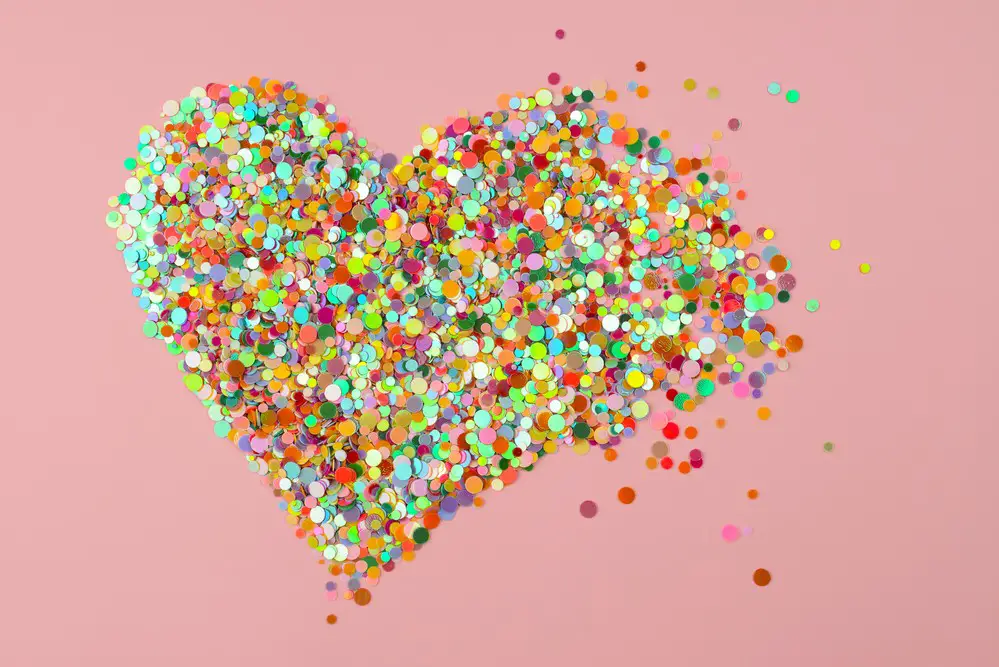As a BetterHelp affiliate, we receive compensation from BetterHelp if you purchase products or services through the links provided
The end of a relationship can be a painful and confusing experience, especially when a former partner moves on to a new relationship seemingly overnight. To better understand how your ex could fall in love with someone else so quickly, exploring the complex emotions, attachment, and healing process associated with breakups is essential. This article will delve into the factors that contribute to a person’s ability to swiftly move on after a relationship has ended, along with insights on rebound relationships and the role of social media in breakups.
Breakups can vary significantly in their impact on individuals, depending on their attachment styles, compatibility, and the circumstances surrounding the relationship’s end. While it might feel unfathomable to witness your ex in a new relationship so soon, it’s crucial to remember that each person’s healing process and the concept of closure are unique. By examining the important factors in their relationship and your own, you may find a sense of understanding and peace on your road to moving forward.
Key Takeaways
- The healing process after a breakup differs for each individual, influenced by emotional attachment and compatibility.
- Rebound relationships, and the impact of social media can contribute to the perception of an ex quickly moving on.
- Finding closure and understanding the dynamics of breakups can aid personal growth and progress.
 Understanding Breakups and Time
Understanding Breakups and Time
Normalizing Rapid Moves
It is not uncommon for individuals to jump into new relationships shortly after a breakup. People heal and move on at different rates, and it’s important to respect that everyone’s journey is unique. For some, moving on quickly can be a coping mechanism, while for others, it might simply mean they have processed the end of the relationship and are ready to find love again.
Experiencing Time Differently After a Breakup
After a breakup, people often experience time differently. The ones who have ended the relationship might have been processing the decision for a while, thus making it easier for them to move on quickly. On the other hand, those unprepared for the breakup might need more time to heal and come to terms with the situation.
The concept of time with healing varies based on individual perspectives and emotional states. A person’s support system, self-awareness, and capacity to cope with change can all contribute to how quickly they can move on from a past relationship. Recognizing that everyone’s experience with breakups is different and unique can help make sense of why an ex might enter a new relationship seemingly immediately after a breakup.

The Role of Emotions in Moving On
The Impact of Emotional Availability
Emotional availability significantly affects how quickly someone falls in love with a new partner after a breakup. People with high emotional availability are likelier to open up, share their feelings, and give love a chance. On the other hand, someone with low emotional availability might find it difficult to establish connections, leading them to take longer to move on.
Ego, Emotions, and New Relationships
Egos can influence emotional processing, affecting how quickly one moves on from a past relationship. A person with a strong ego may refuse to acknowledge their emotional pain, opting instead to enter a new relationship to avoid confronting their feelings quickly. This behavior makes them appear as they have moved on, but the emotional healing process might be incomplete.
Coping Mechanisms and Emotional Attachments
Coping mechanisms are individual responses to emotional stressors. They range from healthy to unhealthy and vary from person to person. For some, moving on could involve diving headfirst into a new relationship, allowing them to experience a sense of escapism. However, this approach can result in superficial connections, as the emotional roots from the previous relationship remain unresolved.
Empathy, Conscientiousness, and Emotional Intelligence
Emotional intelligence, which encompasses empathy and conscientiousness, is key to understanding the feelings involved in the breakup and starting a new relationship. Individuals with high emotional intelligence tend to have better self-awareness and are more equipped to process and move forward from the end of a relationship. They may also be more likely to acknowledge and work on emotional issues before entering a new relationship, resulting in healthier connections.
Exploring the Concept of ‘Rebound Relationships’
The Regret Factor
Rebound relationships are often initiated shortly after a breakup when someone is looking to fill the void left by their ex-partner quickly. Sometimes, the individual might regret the breakup and see the rebound as a way to validate their decision or distract themselves from the pain. The idea of an ex moving on so fast might make one question the significance of the previous relationship, but it’s important to remember that each person copes with breakups in their way.
Positivity Vs. Panic
People might approach rebound relationships with two different mindsets: positivity or panic. Someone with a positive outlook will focus more on enjoying their new relationship, seeing it as an opportunity for growth and happiness. On the other hand, an individual who is panicking might be more focused on distracting themselves from their ex and the negative emotions tied to the breakup.
It’s important to be aware that panic-driven rebound relationships may not be genuine or sustainable, as they are primarily rooted in trying to avoid feeling hurt or alone. In comparison, rebound relationships founded on positivity have a better chance of developing into meaningful connections over time. However, it’s crucial not to make any false or exaggerated assumptions about an ex’s new relationship – different people cope with emotional stress in various ways, and respecting their journey is essential.
The Social Media Influence on Breakups
Public Display of Happiness
In social media, people can present their lives in a way that appears ideal and happy. It is common for individuals to share only the good moments, creating a sense of inflated happiness. This portrayal can impact how one perceives their ex-partner’s new relationship, giving an impression that they have quickly moved on and found happiness with someone else.
It is essential to remember that social media posts are often curated to highlight the best aspects of one’s life. This can include new relationships, giving the illusion that the connection is stronger and happier than it may be.
Spotting a Superficial Connection
Superficial connections might emerge due to social media’s pressure to showcase an idealized life. Sometimes, individuals may rush into new relationships to fill an emotional void or to present an image of happiness. There are a few signs to recognize a superficial connection:
- Constantly posting about the new relationship: Regularly sharing photos, statuses, and details of their partnership can be an attempt to validate and convince themselves or others of the bond’s strength.
- Focusing on material aspects: Emphasizing gifts, vacations, or expensive dinners may indicate that the relationship is built on superficial needs and lacks deeper emotional connections.
- Ignoring personal growth: Individuals prioritizing showcasing their new relationship over personal development may indicate that the connection compensates for deeper insecurities or unmet needs.
Remember, not everything posted on social media accurately represents someone’s true emotions and experiences. It is crucial to be critical of the information presented online and not base one’s judgment solely on these curated moments.
Terms of Attachment Styles and Compatibility
Mismatch in Emotional Capabilities
Attachment styles play a crucial role in determining the emotional compatibility of individuals in relationships. There are four main attachment styles: secure, anxious, avoidant, and disorganized. Each attachment style shapes how people approach and engage in relationships, influencing how they perceive and react to their partner’s emotions.
A mismatch in emotional capabilities can cause one person to fall in love quickly while the other may need more time or find it difficult to fall in love. This can result from differences in emotional intelligence, conflict resolution skills, and how well both partners can attune to each other’s needs. For example, a person with a secure attachment style may be able to express their emotions freely and accurately, while an anxious or avoidant partner may struggle with emotional vulnerability.
Authentic Closeness Vs Forced Attachment
Authentic closeness involves genuine connection and emotional intimacy between two people, while forced attachment is driven by fear or anxiety. People with anxious attachment styles may feel compelled to create intense emotional connections quickly, often prematurely, to alleviate their fear of abandonment. This haste can foster an illusion of closeness that lacks the foundation of true emotional intimacy.
On the other hand, people with avoidant attachment styles may superficially appear detached or uninterested in forming strong emotional bonds, masking their underlying fear of closeness. Consequently, avoidant individuals may unintentionally contribute to the rapid formation of emotional connections with new partners, confusing their avoidance of vulnerability and fostering the impression of them falling in love quickly.
Recognizing Emotional Mismatches
To preserve the emotional well-being of both partners, it’s essential to identify and address emotional mismatches in a relationship. Some signs of emotional mismatches include:
- Frequent miscommunications or misunderstandings
- Feeling emotionally drained or unsupported
- Constantly questioning the relationship’s stability
Both partners need to be open and honest about their attachment styles and emotional needs to navigate emotional mismatches. By understanding each other’s emotional capabilities, partners can foster a relationship based on mutual support, trust, and emotional growth.
 The Healing Process and Growth After Breakups
The Healing Process and Growth After Breakups
Caring for Grieving Hearts
When going through a breakup, taking care of the grieving heart is essential. This involves allowing oneself to feel the pain, as suppressing emotions can make healing more difficult. It is crucial to show compassion towards oneself and accept that grief, sadness, and anger are normal. Utilizing supportive networks like friends, family, or therapy can provide the necessary emotional support for healing.
The Role of Self-Awareness in Healing
Being self-aware plays a significant role in the healing process. Recognizing personal emotions, behaviors, and thoughts that emerge during the relationship and its aftermath is essential. This can clarify one’s needs, values, and boundaries moving forward. Emotional intelligence is particularly beneficial in processing the emotions associated with breakups.
From Loneliness to Empowerment
Post-breakup loneliness can initially be overwhelming. However, it is an opportunity to rediscover one’s sense of self which might have been lost during the relationship. Through self-reflection and personal growth, individuals can transform this loneliness into empowerment. A sense of purpose and individual strength can emerge by focusing on personal goals, interests, and well-being. Establishing a strong sense of self after a breakup leads to more fulfilling future relationships.

Finding the Right Person
Building Confidence for a New Relationship
Discovering that an ex has quickly fallen in love with someone else can be difficult for many people. It is important to understand that finding the right person may play a role in this scenario. When someone encounters a new love interest who meets their compatibility needs and complements their personality traits, falling in love can happen more rapidly.
In these situations, it is crucial for the individuals entering the new relationship to have confidence. Confidence aids in the healing process from past relationships. A person can attract a compatible partner by fostering a positive attitude and focusing on self-improvement. This helps in building the foundation for a strong and successful relationship.
Why Past Relationships Don’t Invalidate Future Ones
Remembering that past relationships do not define or invalidate a person’s ability to find love again is essential. Instead, one should view past experiences as opportunities to learn and grow. When past relationships end, individuals can reflect on their journey and make necessary adjustments for future relationships.
When an ex falls in love with someone else quickly, it might signal that the right person has entered their life. This new connection can offer the support, understanding, and compatibility needed to foster a happier and healthier bond.
The healing process comes at different paces for everyone. Some individuals might move on faster from past relationships and find the right person sooner, while others may take more time. Focusing on personal growth, self-awareness, and resilience will eventually lead to finding the right person for a fulfilling relationship.
Closure and Moving Forward
When seeking closure after an ex has seemingly moved on with someone else quickly, it’s essential to understand that everyone processes emotions and relationships at their own pace. While it might be difficult to witness an ex moving on immediately, remember that their actions do not necessarily reflect your self-worth or the validity of your previous relationship.
Give yourself time to heal from the breakup. It’s natural to feel various emotions, such as sadness, confusion, and anger. Allowing yourself the space to experience these feelings without judgment is crucial. It’s important to learn from the past relationship and use it as an opportunity to grow and gain a deeper understanding of your emotional needs.
In the face of your ex finding someone new, focus on boosting your confidence. Spend time with friends and family, engage in activities that make you happy, and explore hobbies that develop your sense of self. By surrounding yourself with positivity and nurturing your well-being, you’ll be better equipped to move forward with confidence and resilience.
As you begin to find closure and move forward, reflecting on the fact that your ex’s new relationship does not invalidate the genuine connection you once shared may be helpful. Be open to the idea that their quick jump to another relationship may indicate their emotional challenges rather than a statement about the quality of your relationship.
In conclusion, achieving closure and moving forward after a breakup requires understanding, self-compassion, and time. Focus on personal growth, and remember that your healing process should not be dictated by your ex’s actions or the presence of a new partner in their life. Eventually, you’ll be emotionally ready to embrace new relationships and experiences with a stronger sense of self.
Frequently Asked Questions
How can someone move on from a relationship so quickly?
Moving on quickly from a relationship can be attributed to various factors. Some individuals may have mentally prepared themselves for the end of the relationship, while others may have strong emotional resilience. Alternatively, some tend to bounce back from setbacks more readily than others.
Why do some people get into new relationships immediately after a breakup?
Getting into a new relationship immediately after a breakup could be a coping mechanism for some individuals. They may seek out new connections to manage loneliness or distract from the previous relationship’s pain. Others might need to validate their self-worth by seeking new companionship quickly.
What does it mean when an ex moves on quickly?
When an ex moves on quickly, it may indicate several possible scenarios. They might have been emotionally detached from the relationship for a while, or they could be trying to avoid dealing with their emotions by immersing themselves in a new romance. Sometimes, it may not hold any significant meaning but demonstrates the individual’s approach to moving forward.
Is it common for exes to find new partners within weeks?
Although it can vary from person to person, it is not unusual for exes to find new partners within weeks. This can be due to the reasons mentioned earlier, such as seeking validation, emotional resilience, or avoiding the pain of the breakup.
How do people deal with feelings when they move on fast?
People who move on quickly from relationships cope with their feelings differently. Some may suppress their emotions, while others rely on new experiences or relationships to help them process and move forward. Additionally, they may focus on personal growth, self-improvement, or exploring new hobbies to manage their emotions.
What should one do when noticing their ex with someone else?
Focusing on one’s well-being and healing is crucial when noticing an ex with someone else. Establish boundaries by avoiding unnecessary contact or social media stalking, and allow time for self-reflection and healing. Focus on personal growth, engage in activities and interests that bring joy, and surround oneself with a supportive network of friends and family.
Jacob Maslow: Navigating Heartache and Advocating for Resilience
Authoring poignant pieces like “How Could My Ex Fall in Love So Quickly?” Jacob Maslow is more than just a writer. With the weight of personal experience on his shoulders, he leans on Lexapro to manage his mental health and proudly carries the title of a therapy veteran. In a prolonged court battle due to an ex-partner’s stark narcissism, Jacob’s writings reflect the anguish of parent-child separation and the struggles of shared custody conflicts. Despite this, he seeks solace in the tranquility of long daily walks, using them as a balm for his soul. Committed to aiding others, Jacob pens articles on mental health and narcissism, offering solace and advice to those with challenging partners. His foundational belief: anyone can surmount their mental health challenges. Additionally, through his dedicated legal platform, Jacob supports those grappling with non-compliant spouses in the battleground of child custody.
- 3 Ways Wearing a Hat Can Help Lower Your Stress Levels - April 19, 2025
- Breaking the Silence: Why Men’s Mental Health Matters More Than Ever - April 15, 2025
- How to Transform a Home’s Patio Space into a Relaxing Space - March 23, 2025
This site contains affiliate links to products. We will receive a commission for purchases made through these links.


 Understanding Breakups and Time
Understanding Breakups and Time The Healing Process and Growth After Breakups
The Healing Process and Growth After Breakups
